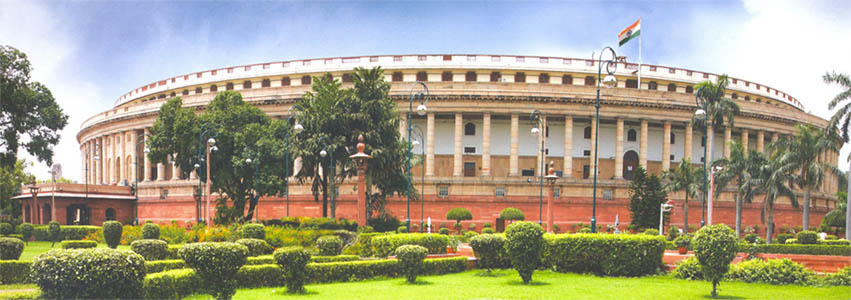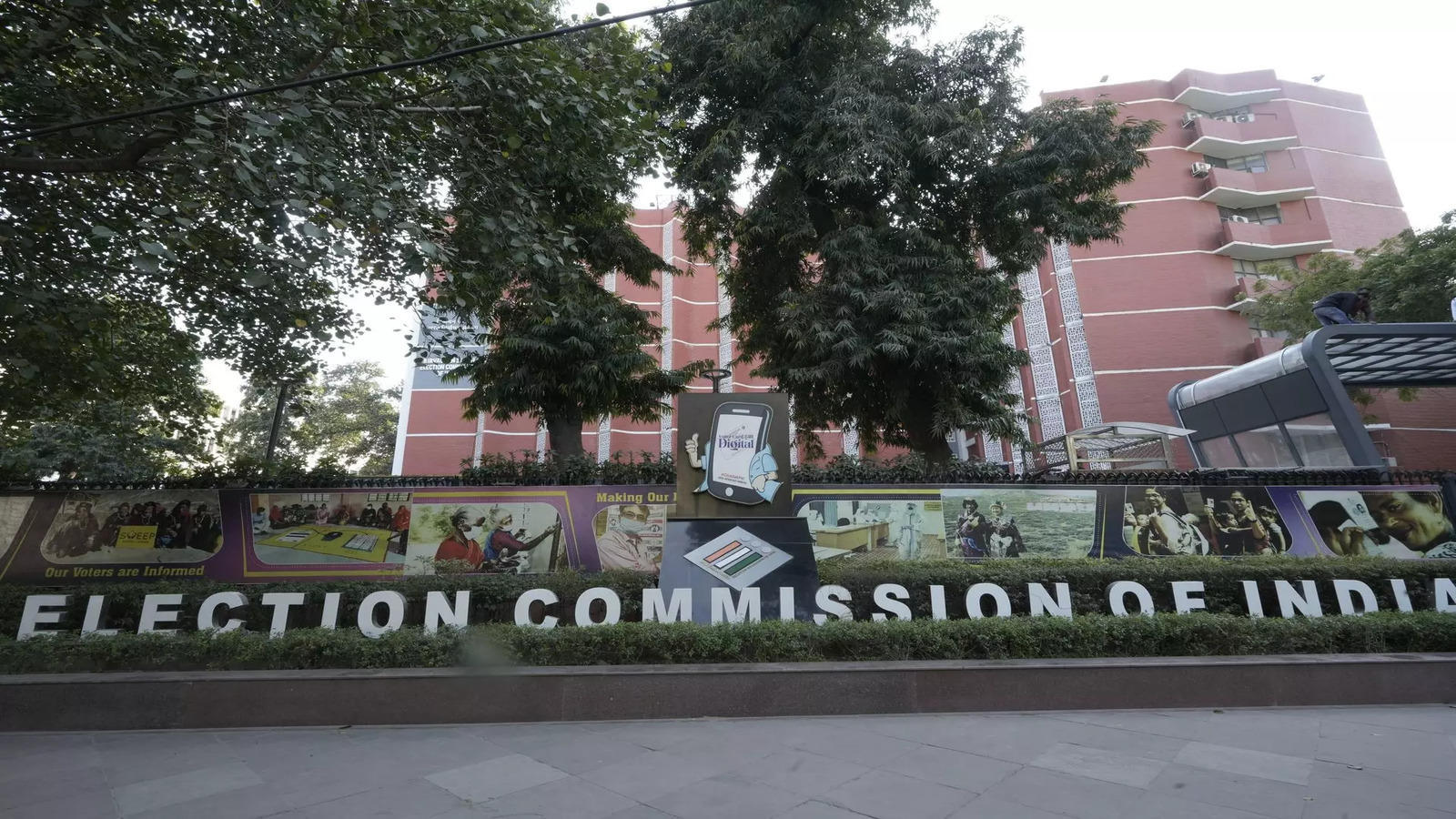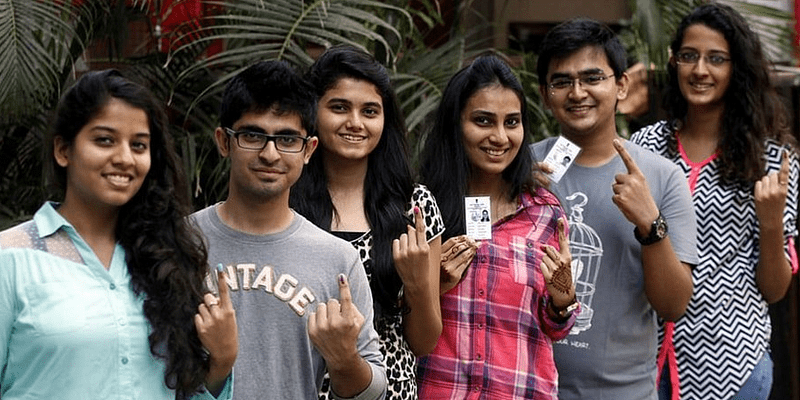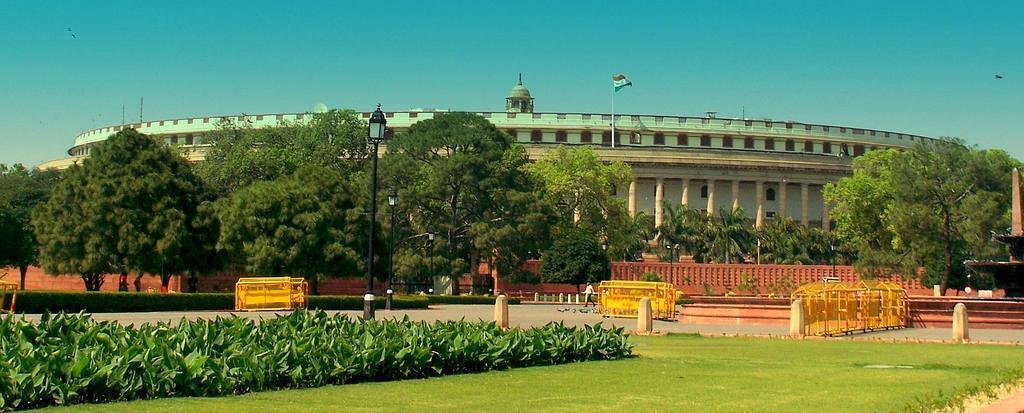Parliamentarians in India stand for the dreams and ambitions of the Indian people. Their contributions to the economic and social well-being of Indian citizens are substantial. Many different fields, including medicine, schools, farms, national security, and infrastructure, are heavily influenced by parliamentary debates. Lawmakers have three important responsibilities as citizens' representatives.
Laws governing the country are debated and passed by them. To guarantee efficient administration, they monitor governmental activities. Through the Union Budget, they ensure public resources are distributed efficiently. Each House of the Indian Parliament follows a certain set of rules called Rules of Procedure. If they want to make successful interventions, MPs must know how to negotiate these Rules.

Lok Sabha: House of the People
When it comes to Indian lawmaking, Parliament is king. The President of India and the two Houses of Parliament, the Rajya Sabha and the Lok Sabha comprise India's legislative body. The President can dissolve the Lok Sabha or call either House of Parliament a prorogue session. January 26, 1950, was the date of the Constitution of India's coming into force. From 1951 to 1952, the new Constitution was put into effect through general elections, and in April of that year, the first elected Parliament was formed.
Houses of Parliament

According to the Constitution, there should be no more than 238 representatives from the States and Union Territories in the Rajya Sabha, and 12 members should be appointed by the President from among those with expertise or experience in areas like literature, science, art, and social service.
Members of the state legislatures use the single transferable vote in an indirect proportional representation system to elect members to the Rajya Sabha, while individuals representing union territories are selected in a way that Parliament may, by law, specify. A third of the Rajya Sabha's members retire every two years, and the house is not dissolved. There are now 245 seats in the Rajya Sabha. Of these, 12 are appointed by the President, and 233 are elected by the states and territories that make up the Union.
The Lok Sabha
Article 79 of the Indian Constitution establishes the Lok Sabha as the lowest house of parliament, sometimes known as the House of the People. Elected by the public through universal adult suffrage, Lok Sabha members serve as the voice of the people.
Under the Constitution, the House of Representatives can have no more than 552 members: 530 from each state, 20 from each union territory, and no more than 2 from the Anglo-Indian community, whom the President may nominate if s/he believes they are underrepresented.
As much as is practically possible, the entire elective membership of the Lok Sabha is apportioned among the States in a manner that ensures a 1:1 ratio between the population of each State and the number of seats allocated to each State. There are 545 MPs in the Lok Sabha right now. Five hundred and thirty-three are chosen at large by the people of the states and territories that make up the Union, with 13 more appointed by the President to serve as representatives of the Anglo-Indian community. The number of seats in the Lok Sabha that were allotted to different states based on the 1971 census will not be changed until the first census after 2026, as per the Constitution's 84th Amendment Act.
Unless earlier dissolved, the Lok Sabha will serve for five years beginning on the day it was scheduled to assemble for the first time. But while an emergency proclamation is in effect, Parliament can extend it for up to a year at a time through legislation, and it can't be renewed for more than six months after the proclamation ends. To date, there have been 14 Lok Sabhas. Nominees for the Rajya Sabha must be at least 25 years old, and Indian citizens must be at least 30 years old before they can be considered for election to the Lok Sabha. Parliament has the authority to legislate further requirements.
About Election Commission Of India
The Election Commission of India, established by the Indian Constitution, is the authoritative body responsible for overseeing and managing the electoral process in the country. It plays a crucial role in conducting and monitoring elections in India and other democratic nations. Understanding the powers and functions of the Election Commission is vital for all citizens.
The inaugural Election Commission was established on January 25, 1950.
The inception of democracy in India led to the establishment of the Election Commission, which oversaw the first election in 1951.
A total of 1849 candidates competed for 489 MP seats, while only 17.3 crores out of a population of around 36 crores were eligible to vote. Initially, the voting age limit was set at 21 for citizens. Article 324 governed the rules and regulations for the election conducted by the Election Commission.
The Election Commission oversees the entire process of elections, from registering political parties to announcing the winners.
Powers And Functions -
Their responsibilities and authority include:
- Assigning symbols to participating parties.
- Recognizing national, regional, or state parties for elections.
- Setting the budget for polling processes, including expenses for polling agents, such as food, stationery, and sanitary measures, to prevent the influence of excessive money.
- Reviewing the expenses submitted 30 days before announcing the results and disqualifying candidates in case of illegal practices.
- Updating the electoral rolls and voters' list.
- Scheduling the date and time for polling.
- Appointing election officers for polling areas.
- Organizing electoral constituents and poll territories.
- Approving nomination papers and documents.
Additionally, the Election Commission settles disputes regarding party symbols and recognition, sets limits for campaign expenditures and the duration of election campaigns. They also enforce a moral code of conduct for elections, first issued during the 5th general election in 1971. The commission has the authority to disqualify a candidate even after the election if they violate election guidelines.
The Election Commission of India comprises officials such as the Chief Electoral Officer, District Election Officer, Returning Officer, and Electoral Registration Officer.
Role of the Election Commission of India (ECI)
Elections to both the Union and individual states in India are overseen by the independent and constitutionally-created Election Commission of India. Members of the Lok Sabha, Rajya Sabha, and state legislatures as well as the president and vice president of India are chosen by this body.
Part of India's Constitution, the Election Commission remains in place indefinitely. In 1950, on January 25th, the Election Commission was formed as per the Constitution. In 2001, the Commission marked its Golden Jubilee. A Chief Election Commissioner (CEC) was the sole member of the commission from the outset. Two Election Commissioners and the Chief Election Commissioner make up the present composition.
All election commissioners, including the chief, are appointed by the President. These officials serve for a maximum of 6 years or until they reach the age of 65, whichever comes first. The rank and salary of these officials are comparable to those of the Supreme Court judges. Only on the recommendation of the CEC can the election commissioners or regional commissioners be removed from office. A resolution passed by both houses of parliament with a special majority on the grounds of incapacity or misbehavior is necessary for the President of India to dismiss the CEC.
The Election Commission has declared that approximately 97 crore Indians will have the right to vote in the upcoming Lok Sabha elections this year, indicating a 6 percent rise in registered voters since 2019. The electoral lists were released in all States/Union Territories throughout the country in early February following an extensive Special Summary Revision 2024 procedure.

The role of the ECI encompasses a wide range of tasks, such as creating and updating voter registration lists to reflect all eligible voters, establishing nationwide electoral constituency borders under the Delimitation Commission Act of Parliament, and more. The following are the powers that the Indian Election Commission can exercise:
- The review of nomination forms and the dissemination of election schedules.
- Identifying political groups and providing them with election campaign stickers.
- Taking up the role of a judge to settle disagreements on having political parties recognized and given election symbols.
- Electing investigators to probe complaints regarding voting processes.
- Setting standards for how political parties and candidates should act during the election process.
- Coming up with a plan to promote each party's platform on television and radio throughout the election season.
- Guiding the President on issues related to the removal of members of parliament.
- Assisting the governor with issues like disqualification of members of the legislature.
- The violence, vote-rigging, or other irregularities, such as booth capture, necessitate the cancellation of the election.
- Having the president or governor appoint the staff responsible for the election.
- Keeping an eye on the country's voting machines to make sure elections are run fairly and without bias.
- Officials are required to notify the President after one year of whether or not elections may be held in a state under their control to prolong the state of emergency.
- Parties at the federal or state level are defined following the outcomes of their respective polls.
The responsibilities of the Election Commission are as follows:
- Everyone involved in the process of electing India's Vice President, President, and state legislatures is overseen, coordinated, and controlled by the ECI.
- The primary responsibility of the Commission is to establish the dates of the general elections, after checking for conflicts with other state and union elections.
- Electoral rolls are created in tandem with the distribution of electronic picture ID cards (EPICs).
- Location of polling stations, distribution of voters, sites for tallying votes, necessary preparations at polling places and surrounding areas, and any other issues pertaining thereto are decided upon by the Election Commission of India.
- It confirms the existence of political parties, provides them with election insignia, and settles disputes related to them.
- An advisory group for the Commission is also looking into the issue of state leaders and representatives being sacked following elections.
- To ensure that all candidates and political parties adhere to the Model Code of Conduct, the Indian Election Commission has published it. This puts a halt to unethical actions and the misuse of power to garner favor.
Upcoming Lok Sabha Election in India
One of the largest political events in India and arguably the world is the five-yearly Lok Sabha elections. India will have its eighteenth Lok Sabha election in 2024. Although the date is unknown, the 2024 General Elections are expected to take place in April and May. The ECI announced the preliminary election date, sparking a stir across. The CEC of India has set the Lok Sabha election for April 16, 2024. Senior poll authorities expect election dates in late February or early March and voting to be completed by the last week of May. The ECI normally sends a panel of observers to oversee planning in all states before setting the schedule.
First-Time Voters' Guide to the Lok Sabha Election 2024

The 2024 Lok Sabha Election is causing enthusiasm and responsibility, especially among first-time voters. These young and dynamic people can revolutionize India and influence its destiny. Voting is not simply a responsibility but a way to strengthen democracy. For first-time voters, here are some key things to be mindful of:
- Enroll in the electoral roll before elections. Visit the Election Commission of India website to verify eligibility and registration.
- Discover polling station locations, voter ID requirements, and how to vote.
- Before making an opinion, check numerous trustworthy sources.
- Politely debate politics with friends, family, and neighbors.
- Beware of voting booth misinformation. Only trust ECI communication and polling booth staff.
- Bring an Aadhar or driving license.
- Do not jump in line; wait.
- Do not bring your phone to the EVM room—you may be booked.
- Avoid taking selfies when pressing EVM. This could get you in trouble.
- Be careful when pushing the candidate button and don't press multiple buttons.
First-time voters matter in the 2024 Lok Sabha Election. Every vote helps the nation. First-time voters can strengthen India's democracy by learning about the election, researching candidates, remaining informed, and encouraging others to vote. Make sure you have the appropriate knowledge to vote confidently!
Résumer avec l'IA :











